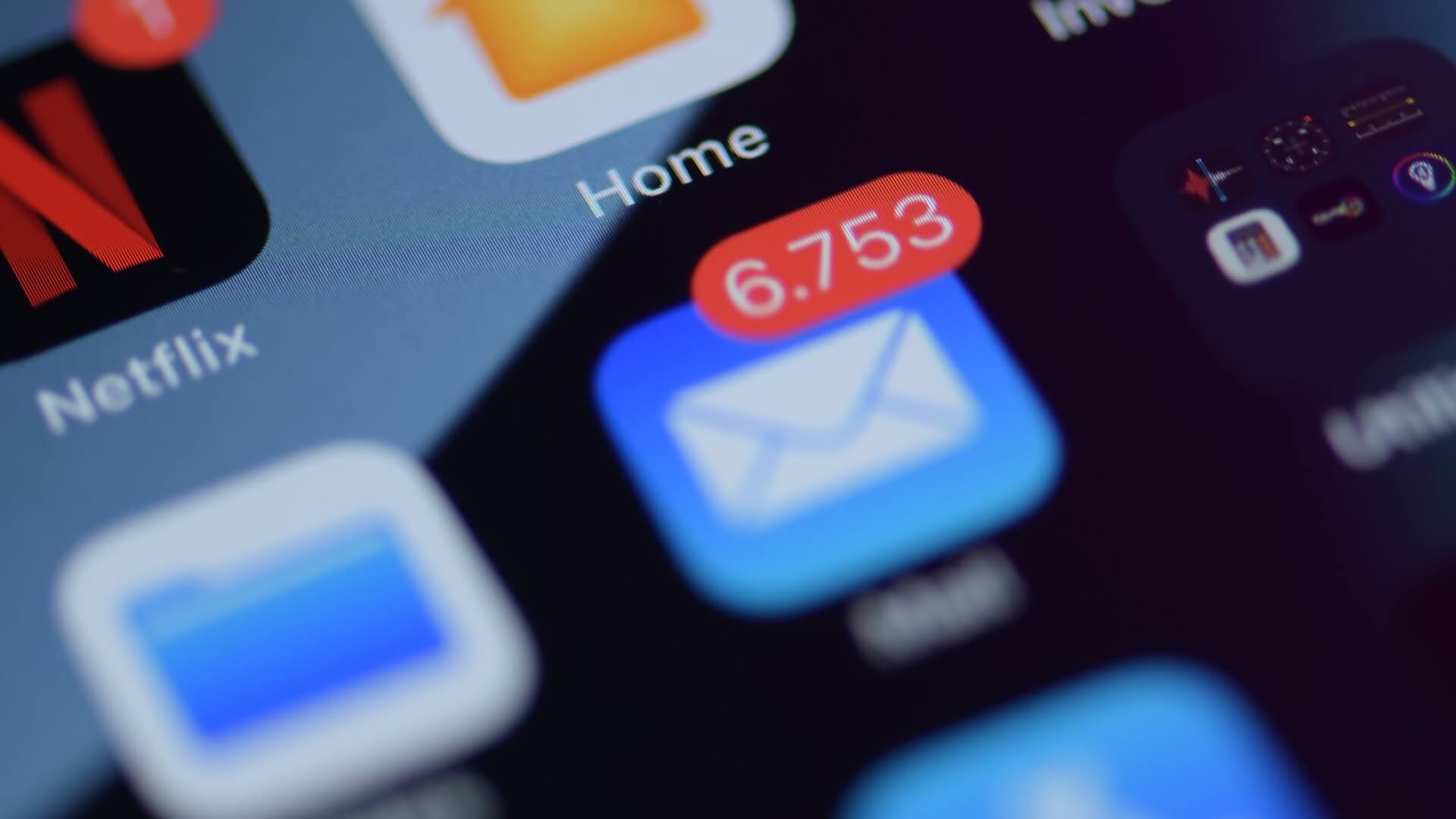How to Avoid Concert and Event Ticket Scams
The concert scene has been buzzing this year with top-tier performances from Springsteen, Beyoncé, Ed Sheeran, Drake, Madonna, Morgan Wallen, Metallica, and the much-talked-about Taylor Swift Eras Tour. With the constraints of the COVID-19 pandemic behind us, there's much anticipation around the smashing of box-office records. While initial ticket prices seemed moderate, they've soared due to resellers, sometimes costing a small fortune. This landscape of limited availability and inflated prices has become a hotspot for ticket scams.
Concert Ticket Scams
The rising demand for live events has given way to a significant uptick in ticket-related fraud. Advanced technology and AI tools have facilitated the easy creation of counterfeit tickets. Many criminals entice fans with the allure of discounted tickets. With events selling out in record time, these fraudsters target eager consumers desperate to witness their favorite artists live. The Better Business Bureau registered over 16,000 complaints related to ticket sales for events from January 2022 to February 2023. The Los Angeles branch alone deals with over 1,100 complaints daily, a considerable portion stemming from ticket scams. Falling prey to these tricks doesn't just mean missing out on an event; purchasing a bogus ticket with your credit card could also expose your private data, making you vulnerable to identity theft.
Taylor Swift Ticket Scams
As Taylor's tour winds down and anticipation builds for the Taylor Swift: The Eras Tour movie set to release this week, it's crucial to spotlight the assortment of ticket scams that plagued fans throughout the year. The unprecedented popularity of her tour paved the way for a fresh wave of cunning ticket frauds. Many have either encountered or been duped by these deceptive tactics. The State of Missouri logged 10 complaints regarding Taylor Swift ticket scams in just one week this past June. " This particular event has just been off the charts for complaints issued to the BBB by unsuspecting victims," remarked Steve McFarland, CEO of the Better Business Bureau.
So, how does the scam operate? It usually begins with a Facebook post advertising Taylor Swift tickets for sale. When you engage with the post, you're quoted a reasonable price and instructed to pay via platforms like Zelle or Venmo, which often lack purchase protection. The seller might assure you of a full refund should any issues arise with the tickets. But, once you transfer the money, communication typically ceases.
In one recent case, a Taylor Swift fan named Katrina in search of tickets was recommended by Facebook to join a ‘verified’ resale group. The group boasted a robust online community with seemingly authentic interactions, claims of safe and secure ticket transfers, and a considerable number of members that gave it an aura of legitimacy. After becoming a member of the group, Katrina came across a post by the group's administrator, Zach Brooks, who encouraged those seeking tickets to reach out to him. Responding to this, Katrina expressed her interest in purchasing tickets. Brooks then mentioned he was coordinating with another female group member wanting to sell two tickets for $800 each. Brooks presented himself as a mediator in this transaction, explaining that both the tickets and Katrina's payment would be routed through him. He assured her that she'd receive the tickets before the seller got the payment, ensuring a safety net for her money in case of any discrepancies. Katrina's trust in Brooks was anchored in his position as the group's admin, an oversight she later recognized, considering that just about anyone can form such groups. Brooks further bolstered his credibility by sharing what looked like authentic screenshots of ticket details and the Ticketmaster transfer process. It was only later that Katrina grew suspicious of these possibly altered images. Brooks then guided Katrina to start the payment process through PayPal, promising her that she'd receive the tickets upon remittance of half the total amount. He requested $500 for the first payment, then $200, followed by $100 in digital gift cards. Motivated by her eagerness to get the tickets, Katrina complied by purchasing two STEAM gift cards and forwarding them to Brooks. However, when Brooks reported issues with the gift cards and sought additional payment, she realized she might be a victim of a scam. The ensuing investigation by Katrina revealed that the Facebook profile of the alleged female ticket seller was probably fake, potentially just another part of Brooks' elaborate Taylor Swift Ticketmaster scam. Although she reported the suspicious activities, Meta, Facebook's parent company, didn't take immediate action. The group remained active for some time, continuously adding members who could also be potential victims. The structure of such Facebook groups, where the admin has the power to vet and approve posts, unfortunately restricts members from promptly warning others about possible internal dangers.
Facebook Ticket Scams
Facebook Marketplace serves as a local classifieds section within the platform, designed to assist individuals and businesses in selling items within their vicinity. This feature is Facebook's attempt to venture into the classifieds market, giving stiff competition to platforms like eBay and Craigslist. While Marketplace offers a platform for selling a myriad of items, most transactions are between individual users and don't come with purchase protection. Recognizing potentially fraudulent activities, Facebook has explicitly banned the sale of event, sports, transit, and admission tickets on the Marketplace.
However, some users cleverly navigate these restrictions by phrasing their listings ambiguously to bypass the vigilant eyes of Facebook's moderators. Such loopholes have unfortunately led to numerous scams, particularly concerning concert tickets.
A notable case from California highlights this issue. A Bay Area resident, Julie, was on a quest for Taylor Swift tickets for herself and her daughters. Given the sold-out status and the exorbitant prices on established resale sites, she turned to Facebook Marketplace, hoping for a better deal. She stumbled upon a listing by Leslie, a mother from a nearby city. Leslie's Facebook profile, not recently established and even sharing a mutual friend with Julie, gave off genuine vibes. The seller even shared specific seating details and what seemed like an authentic Ticketmaster receipt. Trusting the interaction, Julie proceeded to transfer money via Venmo. However, red flags arose when the seller demanded an extra $250 for a "name change fee" and started becoming evasive. Soon after, Julie was blocked, realizing she had been defrauded of $1,300. To make matters worse, she couldn't immediately reverse the charges on Venmo as she hadn't activated the "turn on for purchases" feature. In a twist, it was revealed that the genuine account of Leslie had been compromised. The scammer had exploited Leslie's genuine profile to make the scam seem more convincing, taking advantage of the trust generated from a profile with local connections and activity. While Julie eventually received a refund from Venmo and Leslie regained her account, many similar incidents often don't have such positive outcomes.
Ticketmaster Scam
Many newcomers to the concert scene often wonder: “Can you get scammed on Ticketmaster?” Ticketmaster is a renowned American ticket sales and distribution company with a global footprint, offering tickets for diverse events, from concerts to sports matches. However, this doesn't render it invincible to crafty scammer strategies. Both individuals selling and those purchasing tickets can potentially fall prey to these malicious tactics.
In one example, concert goer Darius Magee secured tickets for a Keith Sweat and New Edition concert at the United Center. While he believed the cost was justified, his anticipation turned to anxiety when he fell prey to a $750 phone scam. Darius had bought the tickets from a reputable third-party site. However, he grew restless when the details didn't promptly show up on his Ticketmaster app. This was because this third-party platform provided the actual QR-coded tickets only a day before the event. Unaware of this policy and amid his worry, Darius tried to contact Ticketmaster directly. Due to the lack of a clearly displayed customer service phone number on Ticketmaster's site, he mistakenly dialed a bogus number he found online. These scammers, pretending to be Ticketmaster staff, tricked him into forwarding $750 in gift cards to "secure his tickets", even though he had already paid for tickets. Realizing the deception, Darius reported the matter to the authorities. Thankfully, his bank managed to recover some of the funds he had lost. For clarity and support, Ticketmaster encourages users to visit their Fan Support Page and, if needed, to interact with their representatives via email or website chat. They also highlighted that they would never request payments via gift cards.
StubHub Ticket Scam
While StubHub is widely regarded as a trusted ticket source, there have been instances where fans faced disappointment after purchasing tickets they believed were genuine. A relevant example involves a Johnson County resident, Kristi Swarthout, who eagerly bought tickets to watch country singer Luke Combs perform at Arrowhead Stadium. After spending around $540 on two general admission tickets in April and receiving a QR code from StubHub, Swarthout and her daughter thought they were all set for the concert. However, their excitement was short-lived. Upon arrival, they were halted at the entrance and informed by the venue staff that their tickets were counterfeit. Shockingly, Swarthout noticed that around 200 other fans had faced a similar dilemma. According to a representative from Arrowhead Stadium, someone had been fraudulently selling tickets on StubHub using static QR codes—codes that were neither generated by their official ticketing system nor valid for the event. Despite waiting for over three hours in hope of a resolution, Swarthout and her daughter never made it inside the stadium. While they missed out on the concert, StubHub did refund the full ticket amount and offered additional compensation for the inconvenience.
StubHub later clarified in a statement: “Our FanProtect Guarantee ensures ticket buyers will either access the event or receive a full refund. In this case, the Ticketmaster-affiliated company, Universe, had listed invalid tickets for the Luke Combs concert at Arrowhead Stadium, which were subsequently purchased and resold on our platform. We've since compensated all impacted buyers and provided additional refunds worth the total value of their orders.”
Is It Safe to Buy Tickets on StubHub?
Counterfeit tickets on StubHub do occasionally slip through. However, StubHub is generally a reliable platform to acquire tickets. It operates by reselling tickets to live events. Not only can official entities like venues, sports teams, and artists use StubHub to sell tickets, but individual ticket holders and brokers can list their tickets too. Given the person-to-person nature of some sales, there's a slim chance of encountering a fake ticket. StubHub has measures in place to verify ticket authenticity, ensure they reach buyers on time, and to address the rare instance of a bogus ticket. If there's an issue, StubHub typically offers an alternate set of similar tickets or provides a full refund. There might be occasional situations where equivalent tickets aren't available, leading to a refund being the only option.
How to Not Get Scammed Buying Tickets
To safeguard oneself from potential fraud, it's important to be well-versed in identifying concert ticket scams. The following tips will assist ticket buyers in steering clear of deceptive schemes:
- Authenticate the Source: Prioritize purchasing from official ticketing platforms to guarantee ticket authenticity and security. This involves verifying the URL prior to transaction. If direct venue or primary ticket platforms like Ticketmaster have exhausted their supply, turn to recognized ticket brokers before considering individual resellers on social media.
- Seek Original Documentation: Request the seller to provide their initial purchase confirmation. A legitimate Ticketmaster buyer, for instance, would possess a confirmation email that they can share with you. Make sure the QR code you scan has all the necessary details that point at authenticity.
- Timing is Essential: Refrain from procuring tickets before the official tour sale begins to mitigate risks associated with speculative ticketing.
- Exercise Caution with Unofficial Platforms: While using third-party or unofficial platforms, ensure not to rely on unprotected payment methods or disclose credit card details over the phone. Always verify that the ticket details match the venue specifications, including the type of ticket (mobile or printed).
- Beware of Unrealistic Offers: Be skeptical of tickets for sold-out concerts available at the last minute or at astonishingly low prices. Scammers often dangle such enticing deals to exploit fans' eagerness.
- Verify Seat Details: Ensure the ticket’s section and seat numbers correlate accurately with the venue's seating chart. Some fraudsters might be lazy enough to provide seat details that don’t exist in your event’s venue.
- Authenticate the Seller's Identity: If a known contact claims to offer tickets, validate their identity by reaching out to them directly to confirm the offer's legitimacy. This can help combat the risk of a Facebook friend’s profile being hacked by a scammer.
- Vigilance with Advertisements: Err on the side of caution when it comes to advertisements. Online searches or social media ads can occasionally be deceptive, so be cautious about sharing personal details.
- Opt for Credit Card Transactions: Credit cards typically furnish additional safeguards against fraudulent transactions. Unlike debit cards, cash transfer apps, or physical cash, credit card companies may offer avenues to recoup lost funds in the event of a scam.
Final Thoughts
The resurgence of live events post-pandemic has revitalized the concert scene, with fans flocking to venues to experience their favorite artists. However, this newfound enthusiasm has also become fertile ground for ticket scammers. With the blend of technological advances and the desperation of eager fans, the scamming landscape has evolved, making it more crucial than ever to be vigilant. By being well-informed and adopting a methodical approach to ticket purchasing, concertgoers can significantly reduce the risk of falling prey to these deceptive schemes. As the world returns to normalcy and the excitement of live events beckons, let's prioritize security and due diligence, ensuring that the experience remains purely about the joy of music and performance.
Compass IT Compliance is a national leader in providing security awareness training tailored to organizations aiming to reinforce a security-centric work culture. This training equips employees with the necessary knowledge to identify and avoid scams similar to those discussed in our article. The pervasive nature of social engineering — which encompasses various malicious tactics driven by human interaction — remains the leading factor behind data breaches, ransomware attacks, and related scams, leading to substantial financial losses worldwide. Prioritizing early and continuous employee training serves as an optimal strategy against these ever-evolving threats. Contact our experts today to gain deeper insights and to address the specific challenges your organization faces!
Contact Us
Share this
You May Also Like
These Related Stories

Super Bowl Ticket Scams to Look Out For

What to Do if Your Elderly Parent Is Being Scammed

.webp?width=2169&height=526&name=Compass%20white%20blue%20transparent%202%20website%20(1).webp)
-1.webp?width=2169&height=620&name=Compass%20regular%20transparent%20website%20smaller%20(1)-1.webp)
.webp?width=2400&height=1425&name=November%202023%20CTA%20(21).webp)
No Comments Yet
Let us know what you think